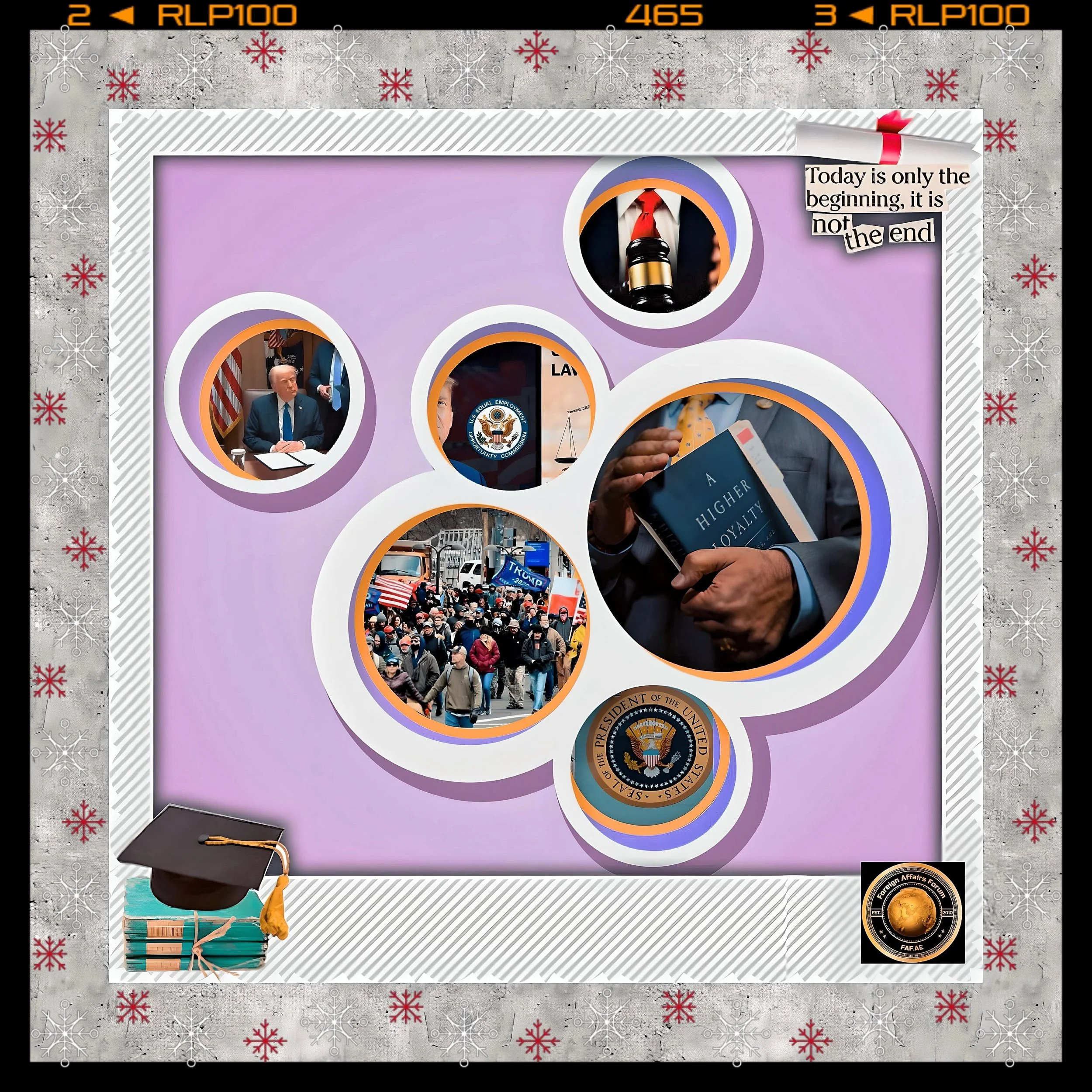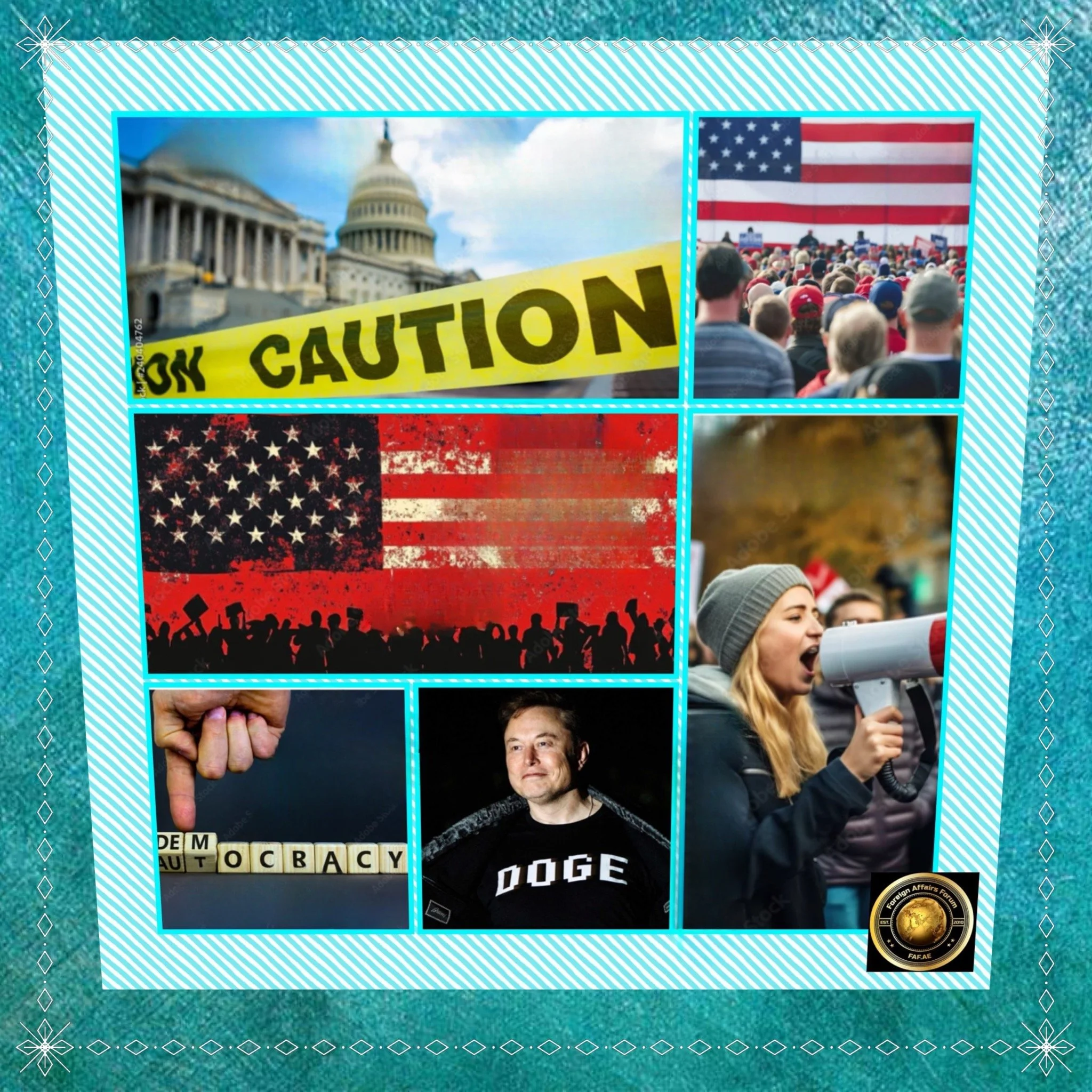Trump’s Loyalty Demands: A Systematic Challenge to American Democratic Institutions
Introduction
The first few months of Donald Trump’s second term have been marked by unprecedented loyalty requirements imposed on institutions across American society, from law firms to universities and corporations.
This pattern raises profound questions about the health of American democracy and the erosion of institutional independence.
Evidence suggests that a systematic approach to requiring loyalty from various sectors has emerged, fundamentally transforming traditional relationships between the presidency and independent institutions.
The Weaponization of Executive Power Against Perceived Adversaries
Since returning to office in January 2025, President Trump has deployed executive authority to pressure various institutions into demonstrating loyalty or facing consequences. This approach targets entities considered adversarial or insufficiently supportive of his administration.
Law Firms Under Pressure
A series of executive orders targeting prominent law firms has put the legal profession under particularly intense pressure.
In March 2025, President Trump issued an executive order against Paul Weiss, restricting the firm’s attorneys from accessing federal buildings and terminating federal contracts.
The order was rescinded only after the firm agreed to provide $40 million worth of pro bono legal services supporting administration causes.
Similar pressure was applied to Skadden Arps, which agreed to provide $100 million in pro bono services and to modify its hiring practices regarding diversity initiatives to avoid facing an executive order.
The pattern continued with executive orders against other prominent firms including Perkins Coie, WilmerHale, Jenner & Block, and Covington & Burling.
While some firms have pushed back through litigation, with judges blocking portions of these orders, the precedent established has alarmed the legal community.
Over 500 law firms signed an amicus brief supporting Perkins Coie’s lawsuit, warning that the executive orders create “an imminent threat” where “any contentious representation that contests the current administration’s actions (or even those it disapproves of) now carries the risk of severe retaliation”.
Universities Facing Financial Coercion
Higher education institutions have faced similar pressure. Columbia University announced policy changes after the Trump administration pulled $400 million in federal funding, citing concerns about antisemitism on campus.
The university agreed to implement nearly all changes demanded by the White House, including barring students from protesting in academic buildings, adopting a new definition of antisemitism, and placing its Middle East studies department under new supervision.
The administration has also suspended approximately $175 million in federal funding for the University of Pennsylvania over a transgender athlete controversy.
As one Columbia alumnus noted in a letter to the New York Times, this represents “an esteemed university, once a stronghold of free speech and expression, yielding its principles to a president who employs the unseemly threat of financial leverage to dictate its conduct and curriculum”.
Corporations and the Tariff Leverage
In the economic sphere, the administration has established what appears to be a system of rewarding loyalty through tariff policies.
On April 2, 2025, Trump declared a national emergency and announced sweeping tariffs on nearly all imported goods.
This builds on patterns from his first term, where the tariff exclusion process “rewarded the rich and well-connected” through “political pressure, informal meetings, and campaign contributions”.
A January 2025 study found that during Trump’s first term, “CEOs that donated to Republicans had a 1 in 5 chance of having their exemption request granted versus 1 in 10 for CEOs that supported Democrats”.
The current administration’s approach appears to be expanding this system, potentially requiring “displays of political loyalty” such as “public endorsement of his policies” or “promises to monitor employees for DEI ideologies or views critical of the administration”.
Loyalty as Government Personnel Policy
The administration’s focus on loyalty extends deeply into government staffing practices, representing a systematic attempt to reshape the federal workforce.
Schedule F and Civil Service Changes
Immediately upon taking office, Trump moved to revive the “Schedule F” executive order that would strip employment protections from career civil servants perceived as disloyal.
This initiative allows the administration to reclassify positions that have “confidential, policy-determining, policy-making, or policy-advocating character” into a category without standard civil service protections.
While estimates vary, experts suggest this could affect tens or hundreds of thousands of federal employees.
The Heritage Foundation’s Project 2025, which has influenced administration policy, openly aims “to bend or break the bureaucracy to the presidential will”.
Democracy Forward characterized these moves as “seeking to replace civil servants who swore an oath to the Constitution to serve the American people with political ideologues loyal only to him”.
Intense Loyalty Screening for Administration Jobs
Job seekers hoping to join the administration face “intense loyalty tests, with White House screening teams fanning out to government agencies to check for ‘Make America Great Again’ bona fides and carefully parsing applicants’ politics and social media posts”.
Applicants have been asked to prove their “enthusiasm” to enact Trump’s agenda and describe when their “MAGA revelation” occurred.
This approach aligns with statements from Howard Lutnick, co-chair of Trump’s transition team, who told the Financial Times that roles would be given based on “fidelity and loyalty to the policy, as well as to the man”.
This explicit personnel approach prioritizing personal loyalty marks a significant departure from traditional civil service principles.
The Historical Pattern and Democratic Implications
Trump’s emphasis on personal loyalty is not new but appears to have intensified in his second term. Throughout his political career, he has consistently valued personal loyalty above other considerations.
A Consistent Value System
Trump has repeatedly stated that he values “loyalty above everything else—more than brains, more than drive and more than energy”.
This was evident in his first term when he told then-FBI Director James Comey, “I need loyalty; I expect loyalty”.
Political analysts have noted that “in the 241-year history of the United States of America, there’s never been a commander in chief who has thought about loyalty and attempted to use it and enforce it quite like Trump”.
Democratic Norms Under Pressure
Democratic governance relies on independent institutions that serve the Constitution rather than a particular leader.
Harvard Law Professor Michael Klarman identified ten basic democratic norms that Trump has challenged, including “respect for an independent judiciary,” “support for a free and independent press,” and “the importance of independent stakeholders within government, as opposed to actors who simply owe loyalty to the president”.
The Atlantic writer Anne Applebaum has described Trump’s actions as part of a “playbook on undermining democracy”.
The current pattern of requiring loyalty from institutions outside the executive branch represents what some observers call an “all-out assault on American democracy”.
This includes disregarding court rulings, attacking judges who rule against the administration, and creating what scholars describe as a “chilling effect” on dissent.
Conclusion
Systemic Challenges to Democratic Governance
The evidence from the first months of Trump’s second term indicates a systematic approach to requiring loyalty from institutions that traditionally operate independently from presidential direction.
By wielding executive power, financial leverage, and regulatory authority to secure loyalties from law firms, universities, corporations, and government employees, the administration has fundamentally altered the relationship between the presidency and key democratic institutions.
The use of executive orders to target perceived opponents, the creation of loyalty tests for government employment, and the leveraging of federal funding and regulatory powers to enforce compliance suggest a significant shift away from foundational democratic principles of institutional independence.
As these patterns continue to develop, their cumulative effect on American democratic governance remains a critical concern for observers across the political spectrum.






